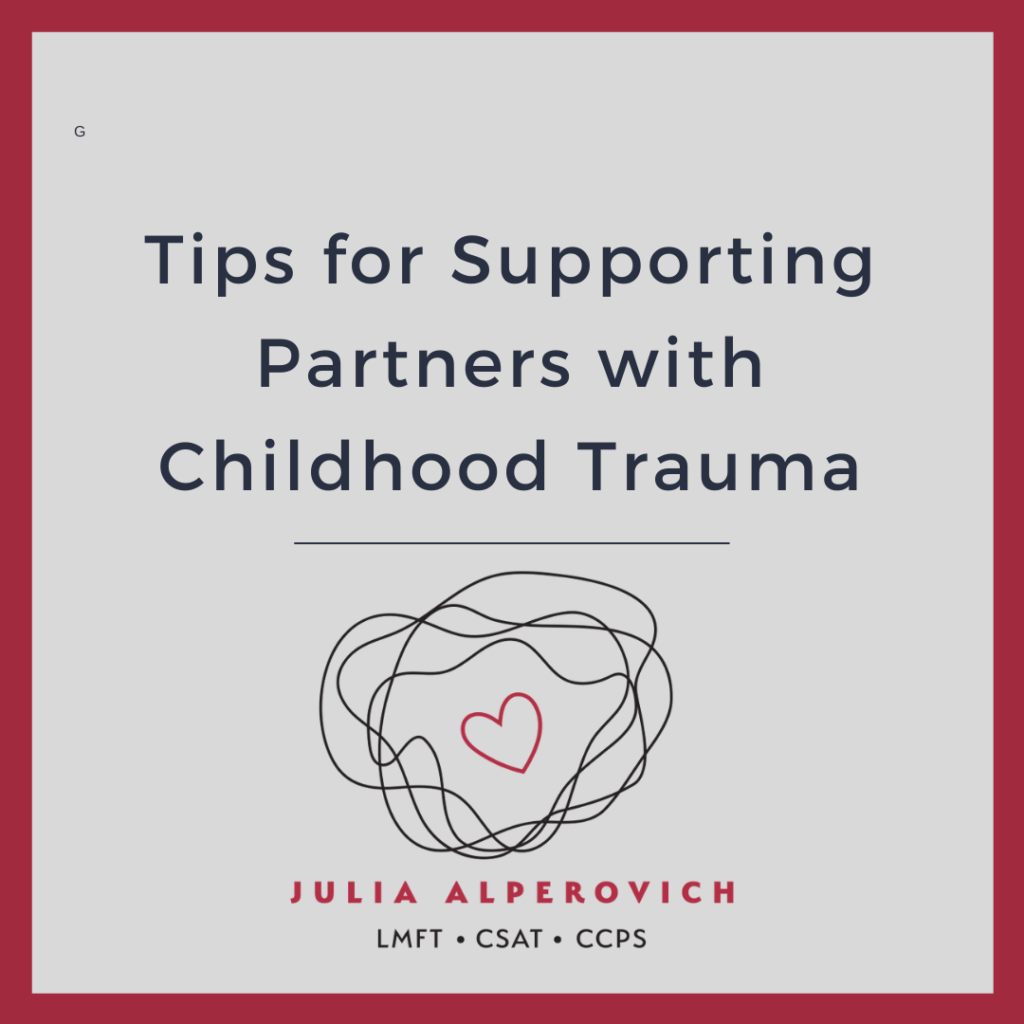Tips for Supporting Partners with Childhood Trauma are not easy to come by because there are no easy fixes for complicated healing. Everyone’s journey is different and if your partner is just seeking help in recovery, your support may look very different from someone who has undergone years of therapy. All things considered, these tips are excellent for all partners of individuals undergoing therapy for trauma. If you or someone you love is suffering from childhood trauma, my doors are open and if you believe they are in danger of hurting themselves or others or in an abusive situation, please see our resources.
- Believe Them. Whether a partner repressed events or emotions or was told that childhood traumas never happened by family members, the first and most important way you can support them is by believing them. Simply believing them will empower the partner and deepen your bond. You would be surprised how rare the belief is for childhood trauma survivors.
- Do not try to diagnose or cure behaviors. There are many behaviors or emotional effects of childhood trauma. It is really natural to want to help a partner, but trying to cure or diagnose them, is not a good idea, even if you are a professional. Listen to them, validate their feelings, and show them you are there for them. Offering to help find counseling is fine, but trying to provide counsel, is not.
- Communication Lines Open. Always communicate. Share your thoughts and feelings without judgment. It is common for those with childhood traumas to be uncomfortable communicating openly. Have patience and continue to be receptive to communication with your partner. Always make it clear that there is no judgment, only support, and love.
- Don’t take it personally. Do not take things personally. There are many manifestations of trauma and they may sneak into your daily life with a loved one, from the style of arguing to withdrawing. It can be exhausting for partners to continually differentiate true feelings from trauma-related feelings. This is on both ends.
- Support for you and your partner. Find support. It can be a minefield to try to understand where trauma ends and a person’s true identity begin. This is much easier to discern with professional therapy and counseling. The first step is committing to healing.
I hope that Tips for Supporting Partners with Childhood Trauma are going to help you in navigating relationships. No one comes as a blank slate. Everyone has baggage. Some is heavier than others, but how beautiful relationships can be, and rewarding, when you are able to heal together.
For appointments Contact me.
Continued Reading Family of Origin and Healing


